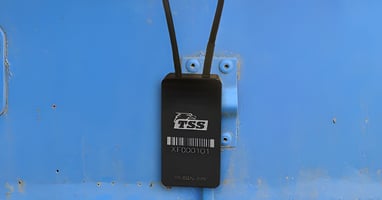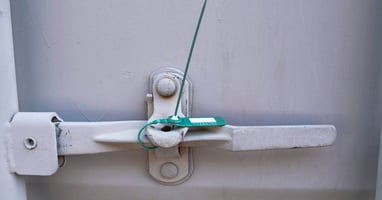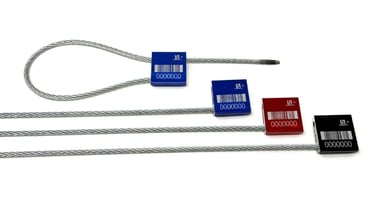Global trade hinges on the movement of cargo across borders, continents, and oceans. With this...
The Role of Security Seals in Regulatory Compliance

Maintaining regulatory compliance is a critical responsibility for organizations across industries. Whether it’s safeguarding pharmaceutical shipments, securing food supply chains, or protecting transported goods, businesses are obligated to meet strict regulations. One device can increase the integrity, safety, and traceability of goods: security seals.
The role of security seals in regulatory compliance is more significant than it may appear at first glance. These small but powerful devices provide visual proof of integrity and help organizations stay aligned with industry standards.
But how exactly do security seals achieve this? And why are they indispensable in sectors like pharmaceuticals, logistics, and food safety? Uncover the answers ahead, discovering how these everyday safeguards are evolving to meet the challenges of modern compliance.
What Are Security Seals?
Security seals are tamper-evident devices that prove the integrity, authenticity, and safety of goods during storage and transit. They’re designed to provide a visible indication of tampering, protecting assets ranging from industrial equipment to consumer products. The primary purpose of security seals is to deter unauthorized access.
The Intersection of Security Seals and Regulatory Compliance
Regulatory compliance is the systematic adherence to laws, guidelines, and specifications set by governing bodies. It’s especially critical in industries dealing with sensitive or high-value goods, where noncompliance could result in penalties, data breaches, or harm to public safety.
Security seals are like silent sentinels in regulatory compliance, upholding product integrity, traceability, and safety protocols—three core pillars of compliance. For example, by providing tamper evidence, seals guarantee that goods arrive in their intended condition, untouched and uncompromised.
Serialized seals allow businesses to track a product’s entire life cycle, aiding in audits and regulatory reporting. Further, seals confirm that high-risk goods such as chemicals or pharmaceuticals are transported securely.
Key Industries That Require Security Seals
Security seals are integral to meeting industry-specific regulations. Here are some key sectors where compliance frameworks depend heavily on these tools:
Pharmaceutical Industry
Pharmaceutical manufacturers must adhere to Good Manufacturing Practices (GMP) to maintain the authenticity of drugs. Security seals serve as the first line of defense against tampering, ensuring that medications are safe for consumption.
Seals also protect against counterfeiting, a growing challenge in the industry. Manufacturers use tamper-evident seals to maintain trust and comply with strict regulatory standards, such as those set by the U.S. Food and Drug Administration (FDA).
Food and Beverage Industry
Under Hazard Analysis and Critical Control Points (HACCP), security seals prevent contamination during food production, storage, and transportation. A well-placed seal shows that food handling complies with safety protocols. The presence of the seal safeguards consumers against health risks while upholding supplier standards.
Logistics and Transportation
Global trade compliance frameworks, such as the Customs-Trade Partnership Against Terrorism (CTPAT), rely on high-security seals, like bolt or cable seals, to secure cargo containers. These seals protect against theft and provide peace of mind for businesses shipping valuable goods worldwide.
Energy and Utilities
Utilities use tamper-evident security seals to prevent unauthorized access to meters or other critical equipment. Compliance frameworks often insist on such measures for operational transparency and customer fairness.

Benefits of Using Security Seals for Compliance
Investing in tamper-evident security measures leads to several advantages for organizations aiming to meet regulatory compliance.
Tamper Evidence
One of the greatest benefits of security seals is their ability to provide clear, visible proof of tampering. This feature means that any unauthorized intervention is easily detected, which is particularly crucial for maintaining the integrity of high-risk or high-value items.
Traceability of Goods
Serialized seals, especially those with barcodes or radio frequency identification (RFID) technology, make it easier to track items throughout their life cycle. This degree of traceability is invaluable for regulatory audits and supply chain analysis.
Cost-Effectiveness
Security seals are a simple, affordable solution for meeting complex compliance requirements. Compared to the potential fines or operational risks of noncompliance, their cost is minimal.
Consumer Trust
Consistently meeting safety and regulatory standards builds trust with customers and stakeholders. By demonstrating a commitment to compliance through security seals, businesses reaffirm their reliability and professionalism.
Technological Advancements in Security Seals
Innovation in security seals is ushering in a new era of compliance and efficiency. Smart solutions address traditional challenges while adding new layers of functionality.
RFID-Enabled Seals
RFID technology allows automated goods tracking for real-time traceability and reduced human error. These seals are extensively used in logistics for effective inventory management.
GPS Tracking
Integrated GPS seals make it possible to monitor the location of shipments in transit. This technology is particularly beneficial for high-value goods or industries with stringent delivery protocols.
Blockchain Integration
Blockchain-enabled seals provide a digital record of every interaction or transit point. This transparency enhances security and compliance, making audits seamless.

Challenges in Implementing Security Seals for Compliance
While security seals are indispensable, their application comes with its own set of challenges.
Counterfeit Seals
The rise of counterfeit seals poses a major risk. Businesses can mitigate this issue by only sourcing seals from certified manufacturers with strong quality control protocols, like Logimate.
Improper Application
Incorrect placement or use of security seals can render them ineffective. Regular employee training and adherence to application guidelines are essential.
Lack of Training
Without proper training, employees may misuse security seals or overlook tampering indicators. Conducting awareness sessions creates an informed, vigilant workforce.
The role of security seals in regulatory compliance is vital, providing businesses with a reliable way to meet strict standards. As industries evolve and compliance standards grow more rigorous, the importance of choosing the right seals and leveraging advancing technologies will only become more critical. By investing in this seemingly simple tool, businesses can secure their goods while maintaining their reputation and setting up for long-term success.
Logimate is your go-to choice for security seals. We offer top-of-the-line seals that meet the strict guidelines of various industries. Use only the best for your products and goods. Contact Logimate today if you have questions or need help finding the best seals for your business.




